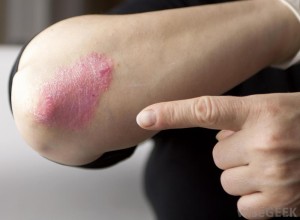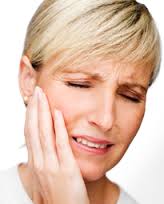-
Book Online Now - Acupuncture Solutions3900 Pebblecreek Ct #101
Plano, TX 75023972-612-4900 - 6501 Wesley St #A-1
Greenville, TX 75402903-213-3679 Learn more about…
#autumn #balance #behappy #fall #familytime #germs #healthlyliving #healthyskin #immunesystem #organs #psoriasis #seasons #sunscreen #thinkpositive acupressure acupuncture allergies anxiety coronavirus covid-19 depression diet digestion energy exercise headaches health heart herbs kidneys liver lungs meditation migraines nutrition pain pms qi sleep spring stress summer tcm Traditional Chinese Medicine winter
Pain
Arthritis Pain
Arthritis is one of the most pervasive diseases in the United States and is the leading cause of disability. According to the Centers for Disease Control and Prevention, one out of every three Americans (an estimated seventy million people) is affected. For most people, arthritis pain and inflammation cannot be avoided as the body ages. In fact, most people over the age of fifty show some signs of arthritis as joints degenerate over time. Fortunately, arthritis can often be managed with acupuncture. continue reading
Acupuncture Wrapped: An overview of some of the most exciting discoveries in 2020

As we enter a new year, it is natural to want to look back on the last one. As humans, we have the gift and the hurdle of marking time, so it can feel helpful to recall memories we want to hold on to or look for lessons we can take with us.
To that end, here are three categories in which research into the type, application and efficacy of acupuncture saw significant advancements in 2020, findings that will certainly help guide us as we move forward. In a year that saw so much focus on our health, these findings offer some good news in the fields of pain management without opioids, migraine headaches, and insight into why it is that acupuncture is effective as an anti-inflammatory. continue reading
Major Acupuncture Study
Acupuncture is PROVEN 52% MORE EFFECTIVE
than the “standard of care” in Western Medicine
for chronic pain!!
Key Points
- Massive study with 18,000 patients
- Not one study, but a META-ANALYSIS by the NIH of 29 of the best quality studies ever conducted
- 6 years spent rechecking and analyzing all the original data; most rigorous to date
- Chronic pain included: osteoarthritis, migraines and chronic back, neck and shoulder pain
 The New York Times provided an excellent summary of the study and you can read more here.
The New York Times provided an excellent summary of the study and you can read more here.
5 Alternative Treatments and Home Remedies for Psoriasis
 For people with psoriasis, suffering from painful symptoms like inflamed, flaking and red skin is not pleasant. The chronic skin condition is due to an overactive immune system that can be triggered by a number of internal and external factors. Many Western treatments include steroid creams and oral medications that come with a slew of unwanted side effects.
For people with psoriasis, suffering from painful symptoms like inflamed, flaking and red skin is not pleasant. The chronic skin condition is due to an overactive immune system that can be triggered by a number of internal and external factors. Many Western treatments include steroid creams and oral medications that come with a slew of unwanted side effects.
Below are alternative treatments that are safe and natural and can help reduce symptoms of psoriasis, leading you back to better health.
1. Herbal Remedies
● Aloe Vera: The gel from this cactus plant can be used generously on your skin to reduce redness and scaling caused by psoriasis. Aloe vera can be found in almost any grocery or health store.
● Tea Tree Oil: Tea tree oil is thought to have antiseptic properties. It can sooth irritated skin or scalp and can be applied daily.
● Turmeric: Turmeric has strong anti-inflammatory and antioxidant properties. Because of this, turmeric has been found to reduce psoriasis and psoriatic arthritis flares. Turmeric can be found in pill form as well as powder form to be added to food.
● Dead Sea Salts: Soaking in a bath with Dead Sea salts or Epsom salts can remove scaly skin and reduce itching. It is recommended that you use warm water and stay in the tub for 15 minutes.
2. Mindfulness/Meditation
Mindfulness and meditation practices have been found to be effective in people suffering with chronic pain like psoriasis.
Meditation is the practice of focusing your attention on the moment and ridding yourself of all external thoughts you may be having. This can lead to a state of relaxation and calmness, bringing balance to your body and mind.
Mindfulness, which is practiced in meditation, includes becoming completely aware of your body, externally and internally. This can be a seated meditation that is focused on awareness of mind, body and senses.
3. Exercise
Not only is exercise important to maintain overall health and wellness, it is especially beneficial for people with psoriasis.
Because people with psoriasis have an increased risk of heart disease and type 2 diabetes, regular exercise can prove very helpful.
Many find it hard to exercise because of the chronic pain associated with psoriasis. Exercise programs in the water prove to be an effective alternative that is easier on the body and still allows you to build endurance and strength.
Other simple ways to fit more exercise into your day include short walks, taking the stairs and stretching.
4. Massage
Seeing a licensed massage therapist can help reduce symptoms and pain. Massage promotes the function of muscle and connective tissue and can increase relaxation and circulation in the body.
5. Acupuncture
Acupuncture has been proven to be effective in minimizing chronic pain in patients. Acupuncture takes a holistic approach with the body and symptoms you may be experiencing. By returning the body to its natural flow, acupuncture can help reduce the intensity of symptoms of psoriasis.
Home Remedies:
● Soak a towel in cold milk and apply to affected area to relieve itching.
● Add ½ cup ground oatmeal into a warm bath.
● Rub the affected area with the inner side of a banana peel.
● Apply aloe vera gel to affected area.
● Cut several fresh willow branches into 3-inch stems and place in a pot with plenty of water. Bring to a boil, then simmer until water becomes black. Wash affected areas with the water three times daily.
● Slice 15 water chestnuts and soak in 3 oz. of rice vinegar crush and store in a sealed jar. Apply the paste to affected area and cover with gauze. Change daily.
Sources:
https://www.psoriasis.org/about-psoriasis
5 Tips to Help With TMJ
 Commonly known as TMJ, temporomandibular joint pain affects over 10 million Americans and can involve difficulty chewing, jaw muscle stiffness and painful popping or clicking, according to the National Institute of Dental and Craniofacial Research.
Commonly known as TMJ, temporomandibular joint pain affects over 10 million Americans and can involve difficulty chewing, jaw muscle stiffness and painful popping or clicking, according to the National Institute of Dental and Craniofacial Research.
Although for some people the pain of TMJ goes away on its own, others develop long-term problems and need treatment to help their pain.
Here are five tips you can practice at home to help your TMJ symptoms.
1. Jaw Exercises: Try opening your mouth as wide as you can without feeling pain, move your jaw to the right and hold for 10 seconds, do the same to the left and repeat five times.
Massage the muscles around your jaw hinge in a downward motion.
2. Relaxation: Stress and anxiety are very common inducers of TMJ. Some people tend to clench their jaw when feeling stressed or anxious, which results in TMJ symptoms.
Practice deep breathing. The best way to do this is to lie on your back, place your left hand on your stomach and right hand on your chest. Count to five to inhale, hold your inhale for two seconds, and exhale for five seconds.
Stretch your spine. Interlock your hands behind your head and bend forward with straight legs so that your head is reaching for the floor. Stay in this position for at least ten seconds accompanied with awareness to breathing. This practice can deeply stretch and relax your spinal chord and reduce TMJ pain.
3. Vitamins and Minerals: Deficiencies in calcium and magnesium are found to be common in people suffering from TMJ. The International Dental Association conducted a study on 50 TMJ sufferers who added calcium and magnesium supplements to their routine and found pain relief in 70 percent of the participants.
Magnesium rich food: Cashews, avocados, almonds soybeans, sesame butter, spinach, squash, sunflower seeds, rice, flaxseed.
Calcium rich food: milk, banana, almond, spinach, coconut, yogurt.
4. Herbal Remedies: Rhus Toxicodendron: This herb can help relieve jaw stiffness.
Kava Root: If your TMJ is due to stress or anxiety, Kava can be used to calm your nervous system and in turn, reduce TMJ symptoms caused by anxiety like a stiff jaw.
Magnesia Phosphorica: This homeopathic remedy can ease muscle stiffness and has an antispasmodic effect.
5. Acupuncture: Acupuncture has proven to be effective in treating TMJ in a number of ways. In Traditional Chinese Medicine, TMJ often represents an imbalance in the liver and gallbladder meridians which traverse the areas usually associated with TMJ pain. Acupuncture points focused on these areas can stimulate the healing process, and return the meridians and the body back to balance, improving your TMJ symptoms.
Sources:
http://umm.edu/health/medical/altmed/condition/temporomandibular-joint-dysfunction
http://home-cure.net/home-remedies-exercises-natural-cures-tmj-treatment/
http://www.healthline.com/health/anxiety/kava-cure